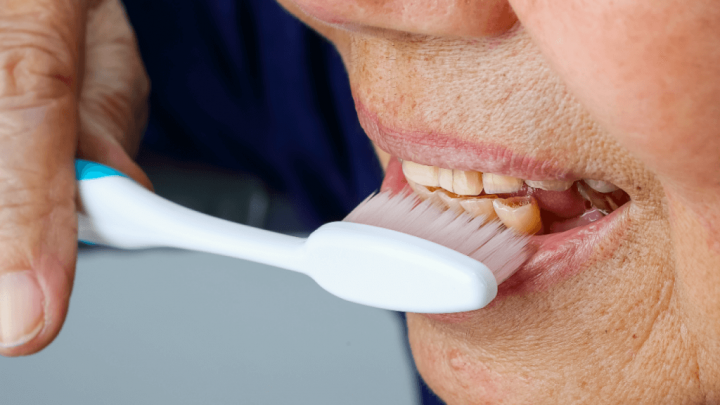
It is a common misconception that old age and the loss of teeth come hand in hand. While long-term mismanagement of our teeth can lead to dental problems in later life, it’s not true that losing teeth is a normal component of getting older. Dental conditions can become more common in elderly people, but if looked after properly, there is no cause for losing teeth in our senior years. Our teeth should last us a lifetime, and oral health is vital in looking after the rest of our body too.
Neglecting teeth and gum health can lead to a number of different issues, the most common including chronic gum inflammation, tooth decay and gingivitis. These issues are serious conditions in themselves but can also lead to other problems such as the deterioration of the structures and foundations of the mouth. Some medical conditions or medication itself can affect our teeth, though poor oral health will always make these effects worse over time. Here are some of the ways in which you can help keep teeth healthy for as long as possible in your senior years.
Brush and Floss Daily
It may seem obvious to some but brushing and flossing your teeth daily is vital in ensuring good oral hygiene. Brushing should occur twice a day and flossing once, both providing great protection against decay and plaque.
Regularly Visit Your Dentist
Making regular visits to the dentist not only helps maintain healthy teeth but can also increase the chances of catching potential dental or mouth issues early on. Failing to discover these problems yourself could result in permanent damage, or a more expensive overall treatment to sort the issue. Dentists are able to identify and reach parts of our mouth that we aren’t able to gain access to and can therefore give our teeth a thorough clean. This is also a great opportunity to keep dental work well-maintained – fillings, crowns and implants all being costly procedures that need monitoring and upkeep to ensure great oral health. For those who wear dentures, dental appointments are especially important to commit to regular check-ups so that they’re clean and safe at all times.
Curb Sugary Food and Drink
Too much sugar will create acid and cause erosion on our teeth no matter what our age, so it’s definitely a food group to avoid as much as possible. Likewise, processed carbohydrates and starchy foods will attach to teeth and cause the buildup of plaque and bacteria within the mouth. Be cautious of the many drinks that contain a large amount of sugar too, as these are not always as obvious as being high in sugar in the way that treats and snacks are.
Eat A Well-Balanced Diet
Eating a healthy and well-balanced diet is not only a benefit to your overall health but will also improve the condition of your teeth. Foods that are encouraged in a healthy diet such as fermented foods are also encouraged in enhancing oral health – the fermentation process helps to balance oral bacteria in the mouth. Supplements containing vitamin D may also be a beneficial addition to your diet, as the vitamin boosts mineral density and helps to carry and deposit calcium into the bones that support our teeth.
